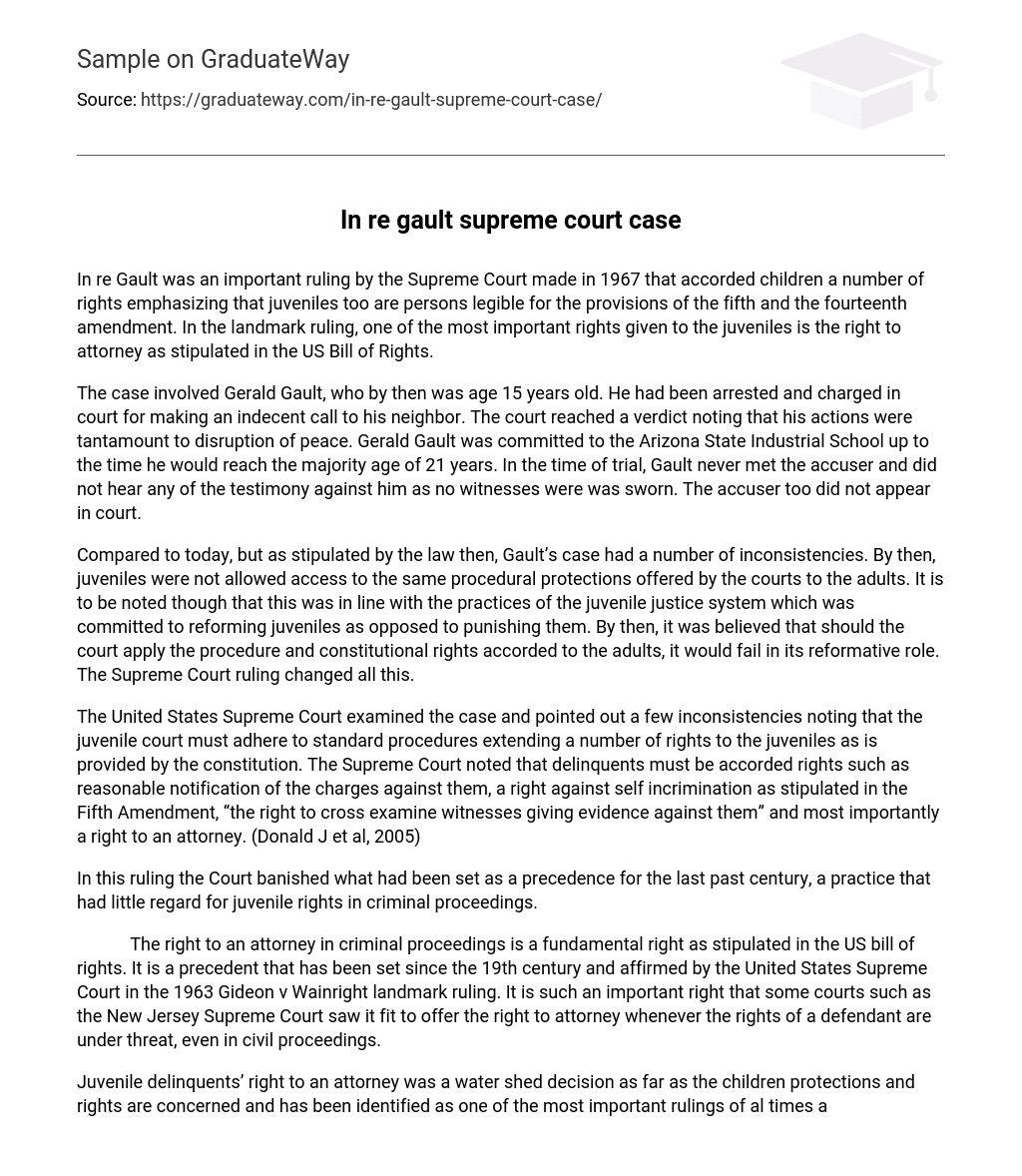In re Gault was an important ruling by the Supreme Court made in 1967 that accorded children a number of rights emphasizing that juveniles too are persons legible for the provisions of the fifth and the fourteenth amendment. In the landmark ruling, one of the most important rights given to the juveniles is the right to attorney as stipulated in the US Bill of Rights.
The case involved Gerald Gault, who by then was age 15 years old. He had been arrested and charged in court for making an indecent call to his neighbor. The court reached a verdict noting that his actions were tantamount to disruption of peace. Gerald Gault was committed to the Arizona State Industrial School up to the time he would reach the majority age of 21 years. In the time of trial, Gault never met the accuser and did not hear any of the testimony against him as no witnesses were was sworn. The accuser too did not appear in court.
Compared to today, but as stipulated by the law then, Gault’s case had a number of inconsistencies. By then, juveniles were not allowed access to the same procedural protections offered by the courts to the adults. It is to be noted though that this was in line with the practices of the juvenile justice system which was committed to reforming juveniles as opposed to punishing them. By then, it was believed that should the court apply the procedure and constitutional rights accorded to the adults, it would fail in its reformative role. The Supreme Court ruling changed all this.
The United States Supreme Court examined the case and pointed out a few inconsistencies noting that the juvenile court must adhere to standard procedures extending a number of rights to the juveniles as is provided by the constitution. The Supreme Court noted that delinquents must be accorded rights such as reasonable notification of the charges against them, a right against self incrimination as stipulated in the Fifth Amendment, “the right to cross examine witnesses giving evidence against them” and most importantly a right to an attorney. (Donald J et al, 2005)
In this ruling the Court banished what had been set as a precedence for the last past century, a practice that had little regard for juvenile rights in criminal proceedings.
The right to an attorney in criminal proceedings is a fundamental right as stipulated in the US bill of rights. It is a precedent that has been set since the 19th century and affirmed by the United States Supreme Court in the 1963 Gideon v Wainright landmark ruling. It is such an important right that some courts such as the New Jersey Supreme Court saw it fit to offer the right to attorney whenever the rights of a defendant are under threat, even in civil proceedings.
Juvenile delinquents’ right to an attorney was a water shed decision as far as the children protections and rights are concerned and has been identified as one of the most important rulings of al times as it bridged the inconsistencies that existed between adult and juvenile criminal proceedings. Justice Abe Fortas emphasized when he made the famous statement that ‘neither the fourteenth amendment nor the bill of rights is for adults alone.” (Byrgen F.,1995) The right to counsel indeed grants all persons, juveniles included a right to a fair trial which is a basic right entrenched in the constitution.
References
Donald J. Shoemaker, Timothy W. Wolfe, Danielle McDonald, 2005. Juvenile Justice: A Reference Handbook. ABC-CLIO.
Byrgen Finkelman, 1995.Child Abuse: A Multidisciplinary Survey. Taylor & Francis,





